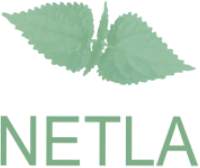Netla – Online Journal on Pedagogy and Education: Special issue 2020 – Education and homes in COVID-19 times (Menntakerfi og heimili á tímum COVID-19) is published by Netla – Online Journal on Pedagogy and Education and the School of Education. Editors were Jóhanna Thelma Einarsdóttir, Jón Ingvar Kjaran and Meyvant Þórólfsson. Katrín Johnson was responsible for the project management of the publication.
In this special issue are 13 articles (two in English). In addition to a general manuscript review, peer reviewed articles are read by the editorial board and peer-reviewed by two experts in the field of the subject. Full anonymity is maintained during the peer review.
Published: 31.12. 2020
University
Guðrún Geirsdóttir, Marco Solimene, Ragna Kemp Haraldsdóttir and Thamar Heijstra
Surfing a Steep Learning Curve: Academics’ experience of changing teaching and assessment due to COVID-19
This paper examines how academic teachers at the University of Iceland dealt with a sudden shift in their teaching practices during COVID-19 in the spring of 2020. The data reveal that despite being pushed outside their comfort zone in many aspects of teaching, interactions and technology, the teachers managed to fulfil different roles and the experiences show the implications of COVID-19 for future teaching at UI. Finally the study emphasizes the importance of peer-learning, peer support and feedback from colleagues in professional developement when the learning curve is steep.
Parents and home
Elizabeth B. Lay og Brynja E. Halldórsdóttir
“This is the first time as a foreigner that I have had such a strong connection to the state”: Parents’ voices on Icelandic school staying open in the time of COVID-19
Iceland was one of very few countries to keep preschools and compulsory schools at least partially open throughout the first wave of the COVID-19 pandemic. This study explores how parents responded to the government strategy of continuing children´s schooling in a crisis. The aim was to understand parents´ perspectives. Findings indicate that the majority of both the Icelandic and immigrant parents were optimistic and trusted the schools´and authorities recommendations. This study contributes to our understanding of the significance of parental social networks for civic engagement in the time of COVID-19.

